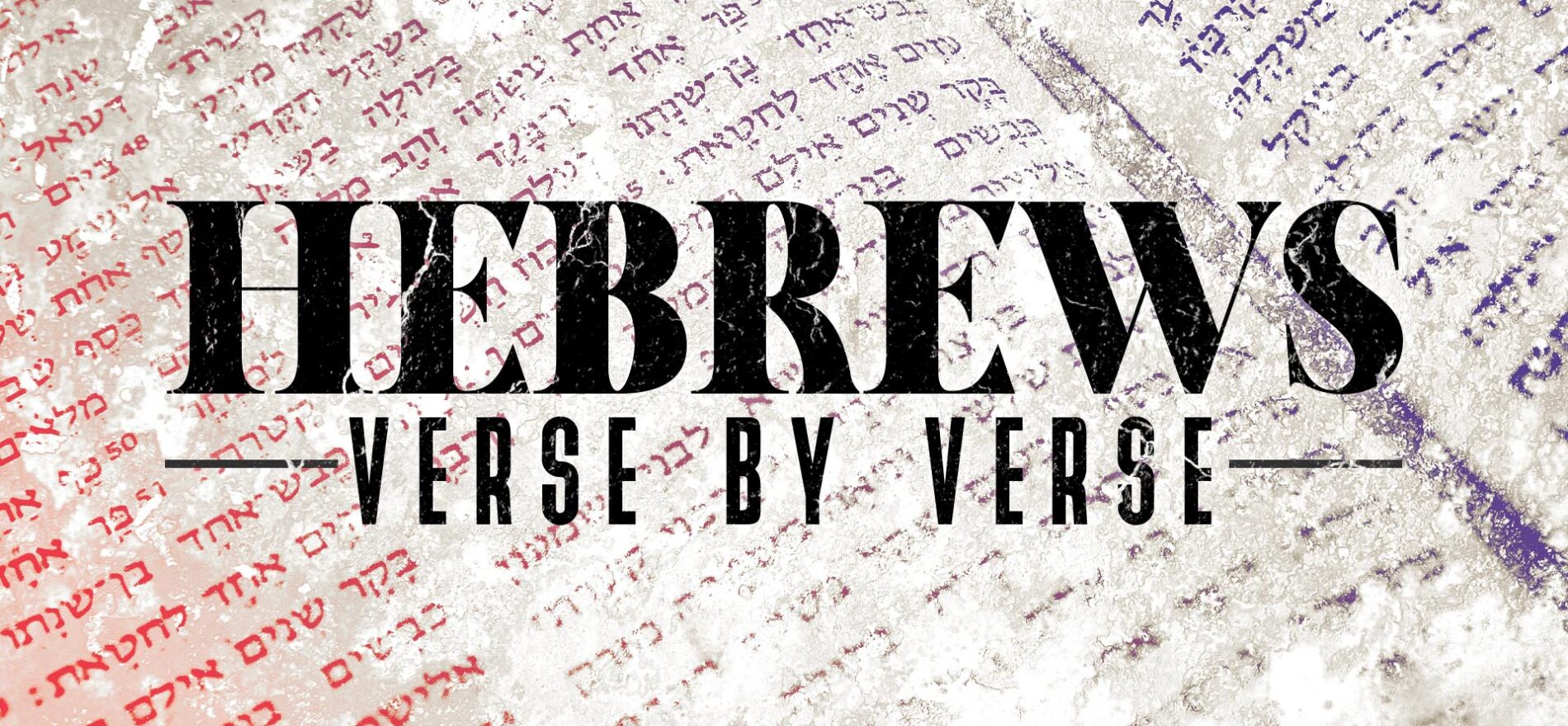The other day I heard a grammar nazi explain the proper use of better and best. The example given was this. The phrase, may the best man win, is only applicable in situations where more than two men are competing. In a competition between two men, you should say, may the better man win. The word better is only appropriate when two things are being compared, while best is used when the comparison is between more than two. I honestly had never given it much thought. Which is better? This or that? Which is best? This, that, or the other thing?
Here, in chapter eight, the author compared the old covenant and the new covenant and correctly employed the word better. “The covenant He mediates is better since it is enacted on better promises.” There’s quite a bit to say about this, so let’s hop to it.
1 Now the point in what we are saying is this: we have such a high priest, one who is seated at the right hand of the throne of the Majesty in heaven, 2 a minister in the holy places, in the true tent that the Lord set up, not man. 3 For every high priest is appointed to offer gifts and sacrifices; thus it is necessary for this priest also to have something to offer.
– Hebrews 8:1-3 (ESV)
I’ve cheated and read ahead just a bit. In chapter eight, the author’s argument for Christ being our High Priest seems to reach its zenith. He said, “Now the point in what we are saying,” which seems to signal that he was trying to put the cherry on top. But notice the we. This is yet another place where the author seemed to communicate not just his thoughts but the collective thoughts of a group of elders. They have all been trying to get this point across, perhaps for some time. I can’t be dogmatic about that, but that’s the sense I get.
A new concept appeared in verse two: the true tent. So far, the author has built his argument against the Old Covenant by highlighting Christ’s ministry as the final High Priest in the order of Melchizedek. This chapter will roughly conclude that argument and begin a new contrast: the earthly temple versus the heavenly temple. He started this transition by pointing out how Christ’s superior priesthood serves in the true tent, set up by the LORD Himself and not men. We’ll get into that more in just a moment. For now, I want to zoom in on verse three.
Every high priest is appointed to offer gifts and sacrifices.
I need to offer a disclaimer here. My thoughts on this verse may stray farther than the author’s intent. That said, I feel I’m still in bounds for the larger discussion about Christ’s ministry in the true tent. So, family, you’re about to enter that area between exegesis and eisegesis, between the author’s intent and my thoughts on the matter. You’re entering the maybe-right zone.
Sorry, that was bad, but I’m pressing on.
Gifts and Sacrifices
Let’s do the obvious stuff first. Christ’s sacrifice was His death. The author will address his once-for-all sacrifice in chapter ten, so I won’t get ahead of myself. You could even perhaps make a connection here with the LORD’s Supper. His sacrifice was His blood and His gift was His body. I like that concept, though it’s not where I will spend the following few paragraphs.
No, when I read gifts and sacrifices, after I considered his once-for-all sacrifice, my mind went to Ephesians 4:8-14.
8 Therefore it says,
“When he ascended on high he led a host of captives,
and he gave gifts to men.”
9 (In saying, “He ascended,” what does it mean but that he had also descended into the lower regions, the earth? 10 He who descended is the one who also ascended far above all the heavens, that he might fill all things.) 11 And he gave the apostles, the prophets, the evangelists, the shepherds and teachers, 12 to equip the saints for the work of ministry, for building up the body of Christ, 13 until we all attain to the unity of the faith and of the knowledge of the Son of God, to mature manhood, to the measure of the stature of the fullness of Christ, 14 so that we may no longer be children, tossed to and fro by the waves and carried about by every wind of doctrine, by human cunning, by craftiness in deceitful schemes.
-Ephesians 4:8-14 (ESV)
Why this passage? Paul tied Christ’s ascension to His High Priestly ministry with gifts given to His church. And this wasn’t a one-time giving. He gave (gives) these gifts until we all attain to the unity of the faith and of the knowledge of the Son of God, to mature manhood, to the measure of the stature of the fullness of Christ. Believer, do you think we’ve arrived yet? I hope you can see that the answer is no. Since the birth of the Church at Pentecost, every generation has needed to grow into this maturity. So the LORD continues to give gifts to His church that grow us into the fullness of Christ.
The list of gifts here in Ephesians 4 is far from comprehensive. Some link these to foundational leadership gifts. Some go further and make a five-fold ministry doctrine where every local church should seek to be led by the five gifts in this list. I don’t subscribe to that doctrine because Paul appointed elders to lead all the churches he planted, not a five-fold ministry of apostles, prophets, evangelists, shepherds, and teachers. These are gifts – manifestations of the Holy Spirit – that the LORD uses to mature His church along with every other spiritual gift.
How am I making this connection? Let’s tie it back to a part of the High Priest’s ministry in the Old Covenant: The Feast of Weeks.
22 You shall observe the Feast of Weeks, the firstfruits of wheat harvest, and the Feast of Ingathering at the year’s end.
– Exodus 34:22 (ESV)15 “You shall count seven full weeks from the day after the Sabbath, from the day that you brought the sheaf of the wave offering. 16 You shall count fifty days to the day after the seventh Sabbath. Then you shall present a grain offering of new grain to the LORD. 17 You shall bring from your dwelling places two loaves of bread to be waved, made of two tenths of an ephah. They shall be of fine flour, and they shall be baked with leaven, as firstfruits to the LORD.
– Leviticus 23:15-17 (ESV)26 “On the day of the firstfruits, when you offer a grain offering of new grain to the LORD at your Feast of Weeks, you shall have a holy convocation. You shall not do any ordinary work, 27 but offer a burnt offering, with a pleasing aroma to the LORD: two bulls from the herd, one ram, seven male lambs a year old;
– Numbers 28:26-27 (ESV)10 Then you shall keep the Feast of Weeks to the LORD your God with the tribute of a freewill offering from your hand, which you shall give as the LORD your God blesses you.
– Deuteronomy 16:10 (ESV)
Notice: Exodus calls it the feast of the first fruits of the wheat harvest. Leviticus says this feast should happen on the 50th day after the Passover Sabbath, and two loaves of bread should be prepared from the firstfruits of the wheat. Numbers commands additional offerings of two bulls, one ram, and seven one-year-old male lambs. Finally, Deuteronomy calls it a freewill offering, according to how the LORD had blessed you.
The Feast of Weeks commemorates receiving the law at Sinai, fifty days after the first Passover. You have freewill gifts of the firstfruits of wheat and sacrifices of bulls, rams, and lambs. By the time Christ had come, this feast was also called Pentecost, a Greek word that meant the fiftieth day.
In addition to commemorating the giving of the Sinai Covenant and firstfruits, Pentecost was also the day the Holy Spirit was sent to birth the church and commence the New Covenant. Here’s how this connects. Christ, the Bread of Life and our once-for-all sacrifice, had ascended to the TRUE TENT where the TRUE ALTAR exists. He then waved Himself over that altar as the TRUE firstfruits offering, the TRUE freewill offering, the TRUE sacrifice, and the gift of the Holy Spirit was sent to His people to initiate the New Covenant that His death and resurrection had secured!
He is the sacrifice, the Holy Spirit is the gift, and Jesus continues to give the Holy Spirit until His Bride is complete! Aren’t you glad He is our High Priest?
This is Why He Had to Leave
4 Now if he were on earth, he would not be a priest at all, since there are priests who offer gifts according to the law. 5 They serve a copy and shadow of the heavenly things. For when Moses was about to erect the tent, he was instructed by God, saying, “See that you make everything according to the pattern that was shown you on the mountain.” 6 But as it is, Christ has obtained a ministry that is as much more excellent than the old as the covenant he mediates is better, since it is enacted on better promises. 7 For if that first covenant had been faultless, there would have been no occasion to look for a second.
– Hebrews 8:4-7 (ESV)
If you’ve ever wondered why Jesus had to return to the Father, verse four offers part of that answer. I recall that J.D. Greear once wrote a book entitled Jesus, Continued… Why the Spirit Inside You is Better than Jesus Beside You. I’ve not read it, but I don’t think I need to because I’ve been convinced of this truth forr a long time. The author offered a very practical reason for Christ’s departure. He could not have served as a priest if he had stayed. Why? The New Covenant had to be enacted. Under the old one, all priests had to come from Levi and High Priests from Aaron to serve in the temple. Jesus was neither. To enact the New Covenant, He had to ascend to a temple where He had every right to serve.
Here, the author began his build-up to a contrast between the earthly temple and the heavenly temple. He pointed out that Moses’ tabernacle was built according to the pattern God showed him on Sinai. It was a copy of the original; a shadow of the heavenly reality. We’ll address that more fully in chapter nine, but even Solomon’s Temple, as glorious and beautiful as it was, was a copy and shadow. Christ’s more excellent ministry demands service from the heavenly original. He mediates a better covenant enacted on better promises.
What does the author mean by better promises? If you’ve made it this far, what follows will make your toil worth the effort.
First off, let’s lay something to rest immediately. The difference in promises isn’t about whether God’s promises now are more reliable than the old ones. The LORD is full of steadfast love and faithfulness. His promises never fail. Every promise He makes is equally reliable. The author does not have the reliability of God’s promises in mind.
The difference lies in the type of covenant. God enters into two kinds of covenants with humanity: conditional and unconditional. Conditional covenants rely upon how we respond to the LORD’s commands. The Old Covenant was conditional. It hinged upon Israel’s faithfulness. Go read Deuteronomy 28. In that chapter, you’ll find the conditions of the covenant God established with Israel at Sinai. Blessings and curses were utterly contingent upon Israel’s faithfulness to the LORD.
Unconditional covenants are different. Actually, unconditional is somewhat of a misnomer. All covenants have conditions. But in the case of so-called unconditional covenants, the covenant conditions lie entirely upon God’s faithfulness, not ours. In other words, the LORD takes the curses of our disobedience upon Himself. I hope that sounds familiar because that is precisely what Christ did on the cross. He took the curses of our disobedience upon Himself. The one condition that remains for us is belief. If you confess with your mouth that Jesus is LORD and believe in your heart that God raised Him from the dead, you shall be saved. Our belief places the curses of our disobedience upon Jesus, the Lamb of God, slain from the foundation of the world.
Do you see how this new covenant is founded upon better promises? They’re not better because they’re more reliable. They’re better because the curses for disobedience were laid upon Jesus, and the LORD took our just punishment, sparing anyone who believes in Him. When the author said the old covenant wasn’t faultless, he referred to its complete inability to save its people from their sins. It cannot, it never could, it was never supposed to.
Why, then, go back to it?
The Prophets Said So
8 For he finds fault with them when he says:
“Behold, the days are coming, declares the Lord,
when I will establish a new covenant with the house of Israel
and with the house of Judah,
9 not like the covenant that I made with their fathers
on the day when I took them by the hand to bring them out of the land of Egypt.
For they did not continue in my covenant,
and so I showed no concern for them, declares the Lord.
10 For this is the covenant that I will make with the house of Israel
after those days, declares the Lord:
I will put my laws into their minds,
and write them on their hearts,
and I will be their God,
and they shall be my people.
11 And they shall not teach, each one his neighbor
and each one his brother, saying, ‘Know the Lord,’
for they shall all know me,
from the least of them to the greatest.
12 For I will be merciful toward their iniquities,
and I will remember their sins no more.”
13 In speaking of a new covenant, he makes the first one obsolete. And what is becoming obsolete and growing old is ready to vanish away.
– Hebrews 8:8-13 (ESV)
The author masterfully used Jeremiah 31:31-35 to drive home his point. Even the prophets said so. They pointed out the insufficiencies of the Old Covenant. The second half of verse nine says it plainly: they did not continue in my covenant. Any covenant that relies on the faithfulness of human beings will be broken on the human side of things. Jeremiah isn’t the only prophet to say this. Many prophets alluded to this reality, but my favorite is Ezekiel.
26 And I will give you a new heart, and a new spirit I will put within you. And I will remove the heart of stone from your flesh and give you a heart of flesh. 27 And I will put my Spirit within you, and cause you to walk in my statutes and be careful to obey my rules.
– Ezekiel 36:26-27 (ESV)
The giving of the new covenant must mean that the old one is now useless. The new one is better, led by a better High Priest.
The Old Covenant, the New Covenant, and That Thing You Made Up
But, let’s compare more. Today, most believers aren’t being tempted to go back to the Sinai covenant. You will still find some who are, but most aren’t. Today, people seem to hodge-podge their own path to God. So-called churches incorporate New Age practices into their discipleship. Some groups have outrightly written their own additions to Scripture or their own versions of the Bible. Or perhaps for you, it isn’t a cult or anything like that. You might be the sort who embraces a works mentality. While it’s not exactly an Old Covenant idea, you believe that if you do enough good things, the LORD will welcome you into His kingdom. You don’t base that on anything in the Bible; you just feel like that’s the kind of person the LORD is.
None of this works out. The gate is narrow, and the way to eternal life is hard. Few find it (Matthew 7:14). One last passage.
19 So then you are no longer strangers and aliens, but you are fellow citizens with the saints and members of the household of God, 20 built on the foundation of the apostles and prophets, Christ Jesus himself being the cornerstone, 21 in whom the whole structure, being joined together, grows into a holy temple in the Lord. 22 In him you also are being built together into a dwelling place for God by the Spirit.
– Ephesians 2:19-22 (ESV, emphasis added)
That thing you made up doesn’t cut it. The path is fixed. The Old Covenant is null and void. That thing you made up is bankrupt. Christ, as taught to us by the prophets and Apostles, is the only way.
Jesus is best.






